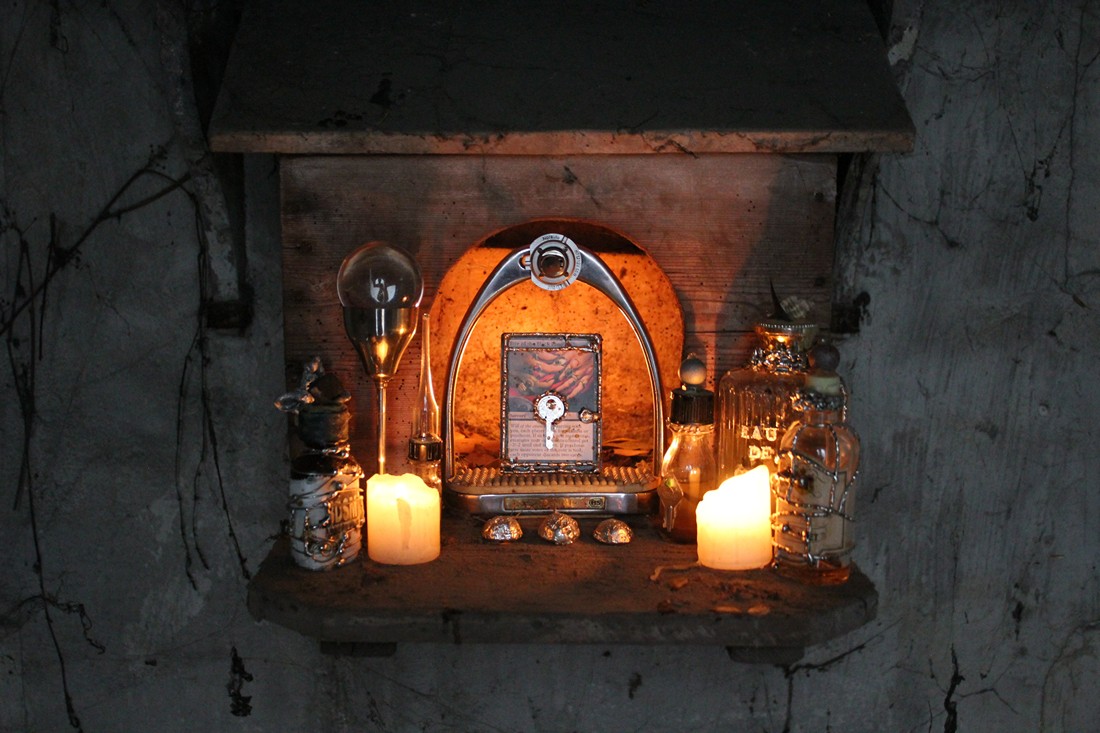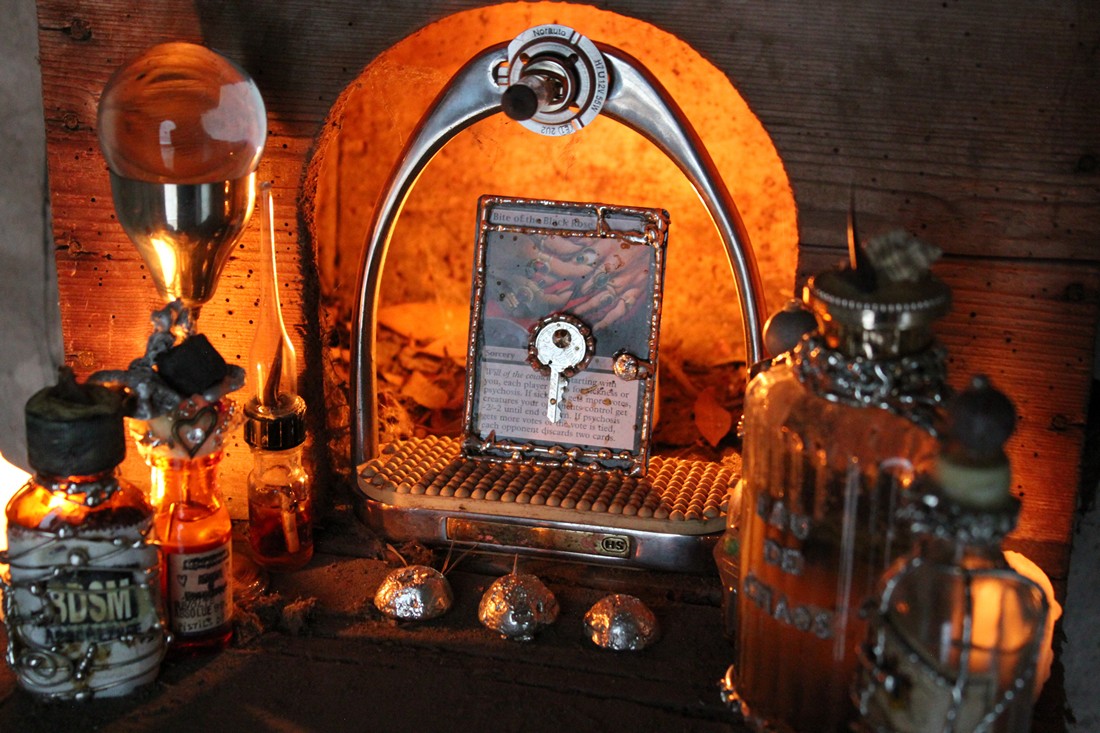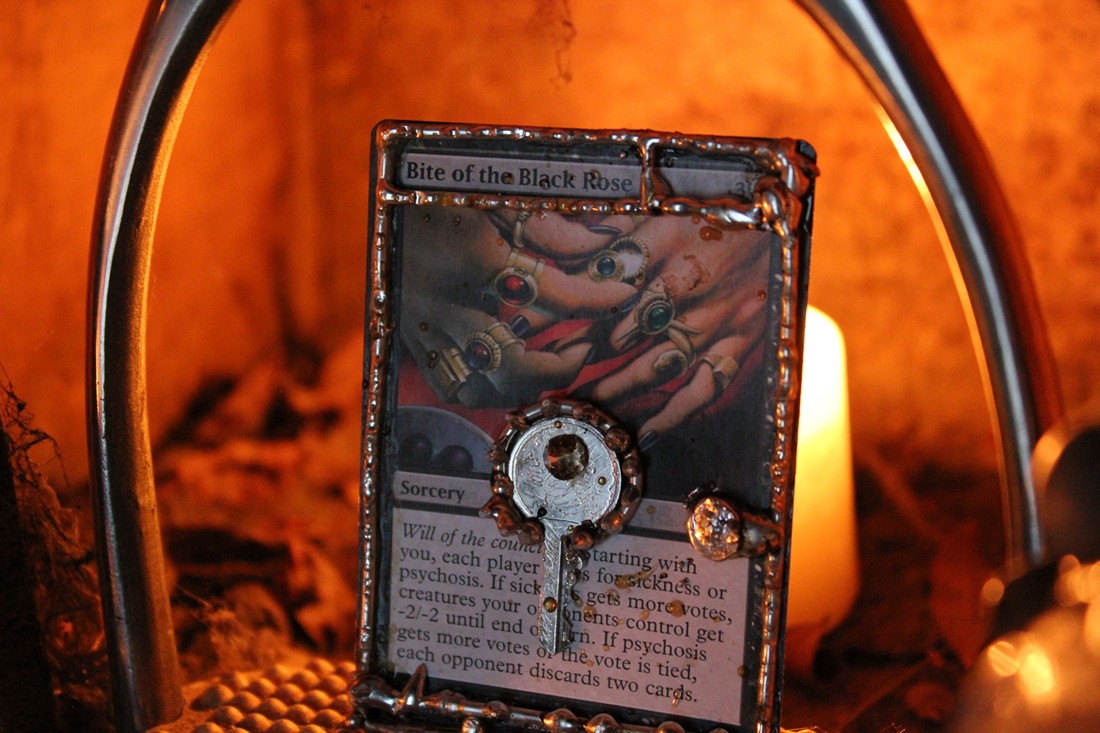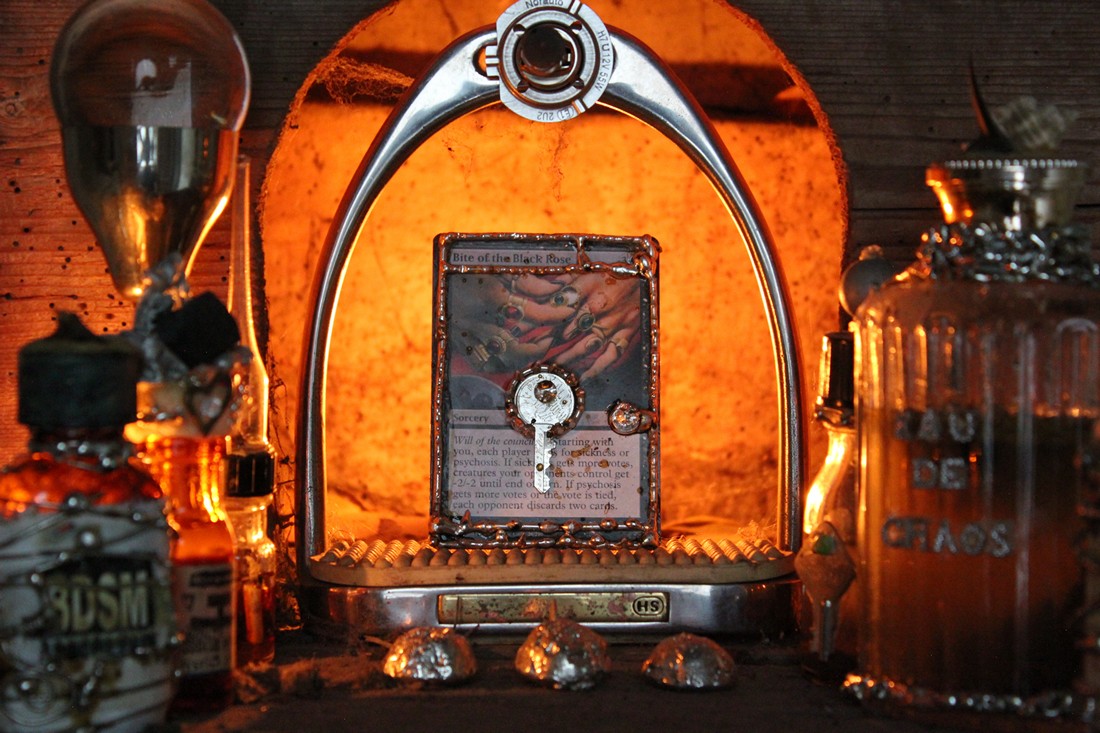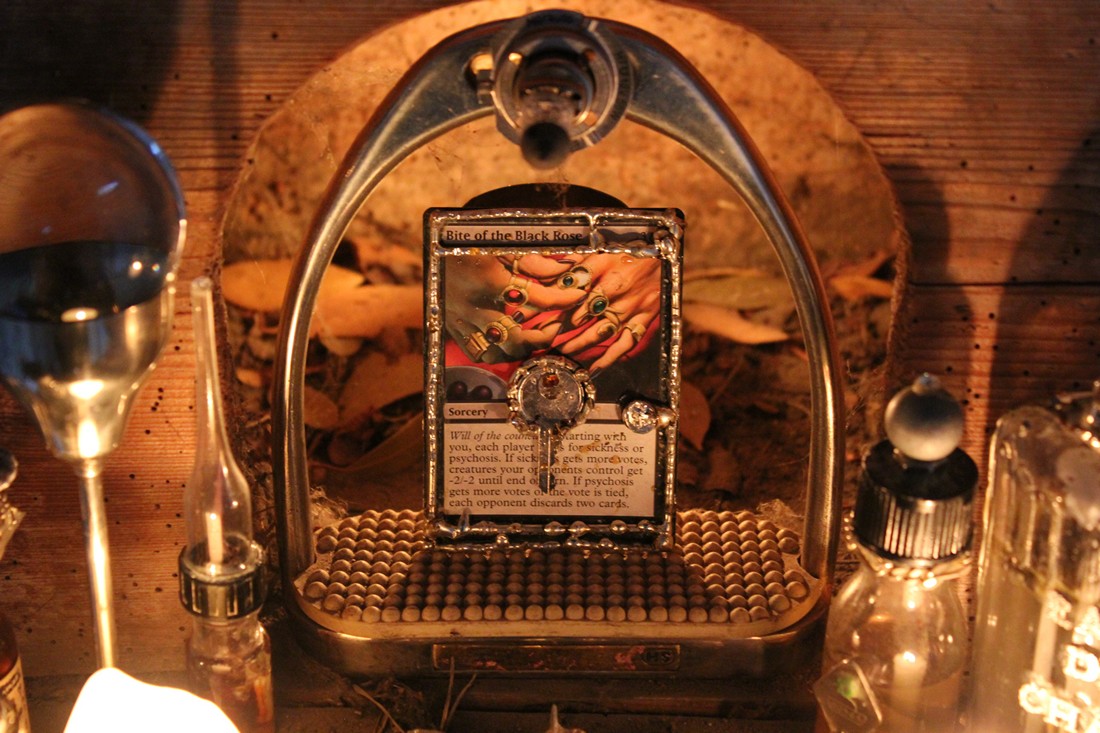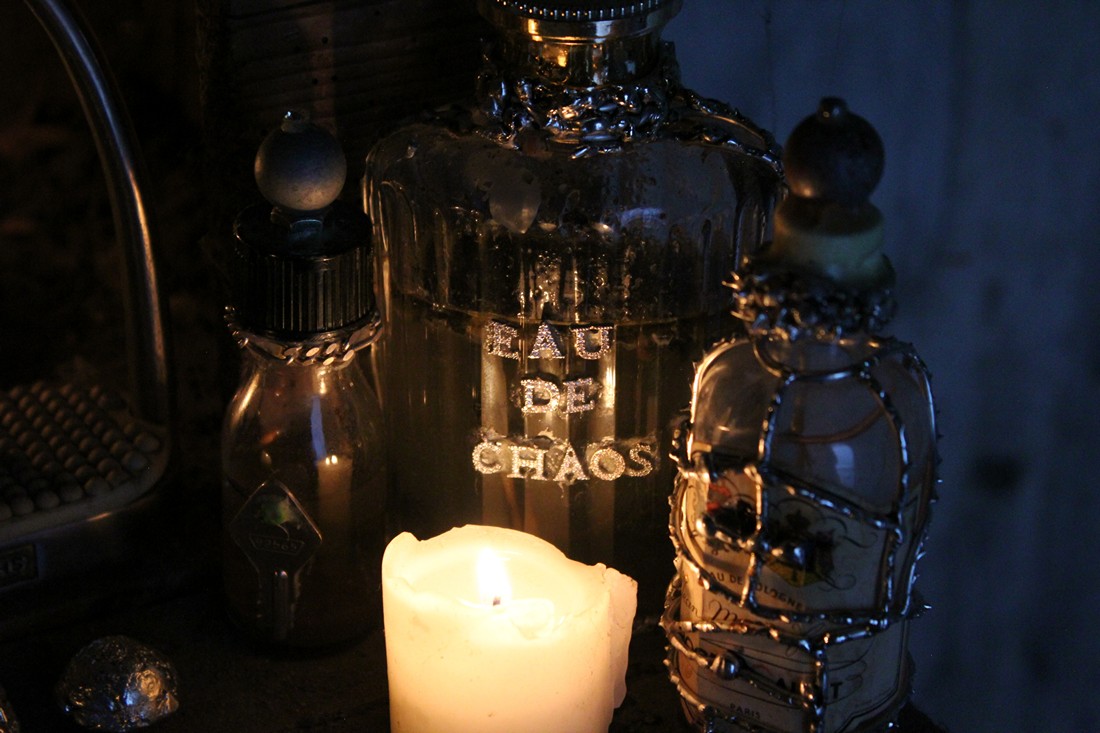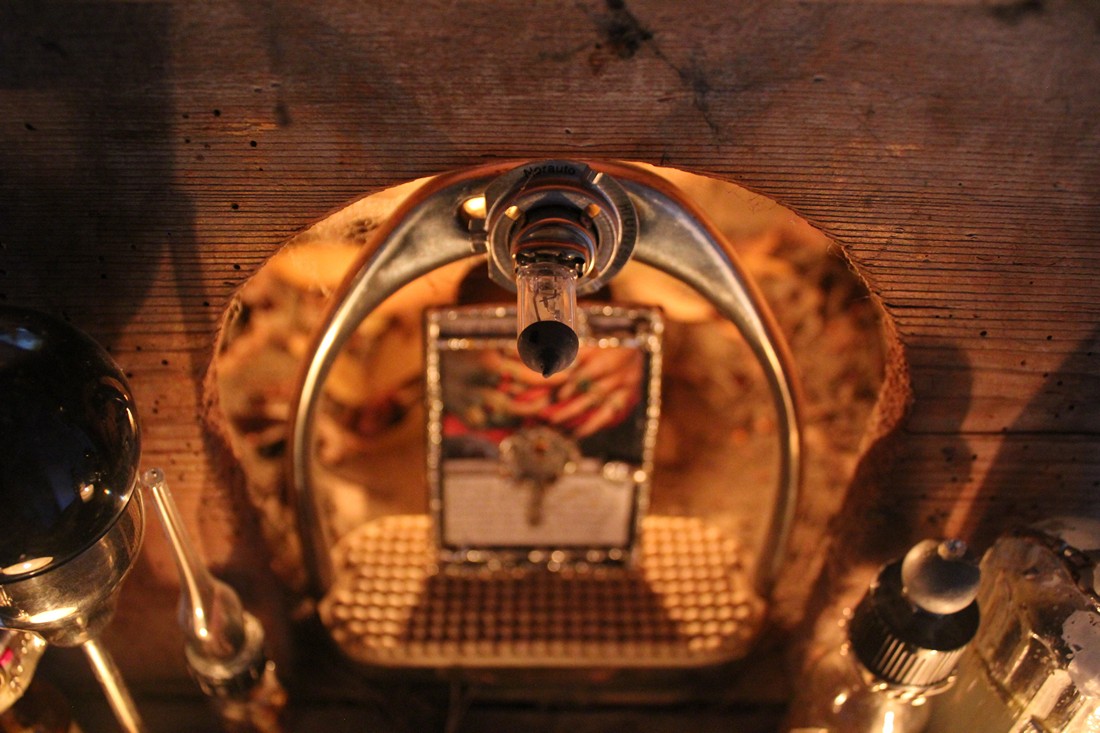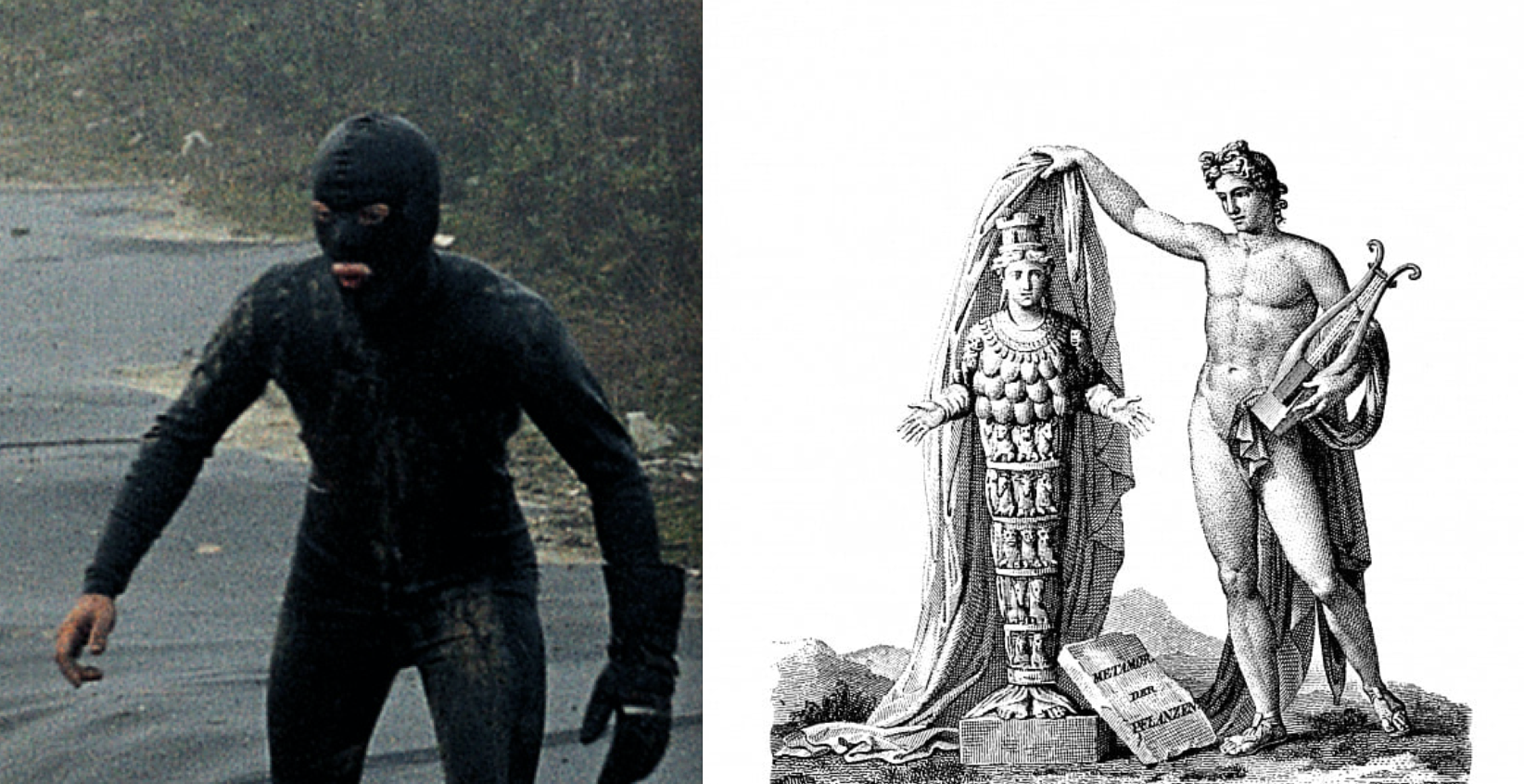In French, the same word – “carte” – is used for maps and cards. Playing cards
could be maps for orientation. Of course the map is not the territory, as Korzybski
said . The territory is always larger, always more interwoven, complex, thick, porous.
I don't like the idea of exploring or discovering a territory. I cry every time I think of
the day when man first set foot on the moon. And it seems to me that we should think
twice before to set foot in a territory where we don't belong, otherwise we might
trigger something terrible like a circle of maledictions, as pioneer fronts and colonial
systems did and still do...
I often think about an image that was on the frontispiece of
Alexander von Humboldt's book, Essay on the Geography of Plants. The image
represents Apollo unveiling a statue of Artemis of Ephesus, also called Artemisia
Multimamma because her naked chest is composed of not two but fifteen breasts,
and whose cult is directly connected with that of the Egyptian Isis. The illustration
was included in a scientific work by Professor Rudolf Magnus about Goethe as a
"man of science". And it is finally found in Pierre Hadot's great book on "the history of
the idea of nature", precisely entitled The Veil of Isis.
In this image, Apollo is
represented white, impassive and almost naked, exactly as in classical Greek
statuary. At the feet of the statue of Artemis that he unveils, a stone tablet lays, on
which one can guess the title of a work by Goethe himself, "The Metamorphosis of
Plants". I mention this image because I think it reveals the violence of humanism, and
because it's precisely this violence that we must collectively deal with if we want to
make another world happen.
To this figure of Apollo lifting the veil of the goddess, I
oppose the figure of a hooded creature dressed entirely in black, like the one we can
observe in the last images of O Fantasma, by João Pedro Rodrigues. My aim here is
not to attack the Olympian Apollo (although there is much to be said about him) but
this particular image which, despite its "antic" appearance, is a pure product of
European modernity. Moreover, the caption of the image does not mention the name
of Apollo himself, since it would be the "genius of poetry unveiling the image of
nature".
This image, in my opinion, is trapped. It presents us with a gesture of
unprecedented violence in the guise of a heroic and poetic act. But the poem does
not have an illuminating power. On the contrary, it should be seen as a way of linking
things together, with respect for the unknown and love for the shadow, because only
this respect and this love can allow the world to unfold as a multiple and colorful
monster.
The "genius of poetry" cannot be represented as a white man with a marble
body and an impassive face, for the poem is the opposite of that: dark, slimy, mutant,
passionate. If we take this to its logical conclusion, it becomes clear that the purpose
of the poem is not to glorify the human, but rather to make language the site of the
articulation of the human and the non-human. This is why the poem is not only a
negative technology, but also an ecology in its own right. Where the pulse of the
world can beat and spread its mystery everywhere. The "genius of poetry" must
become demonic again (in ancient Greek, the word for "genius" was daimon), and
refuse to serve the luminous authority of humanistic reason.
For the poem in the end
is like Lucifer: rebellious and obscure, it carries the true light. If the cards I make are
also maps, they are not intended to discover anything. They allow you to orient
yourself without revealing the territory to which they refer. The little keys found on
them symbolize our ability to maintain intimate links with the world. The goal is not to
force the portals, but to discover the keys within ourselves that allow us to pass
through them.
The card "Bite of the Black Rose", which gives its name to the altar I
present here, is both unique and double. It has a twin, which belongs to a friend who
is both an artist and a medium. I sometimes do things in double to double their power
and so that the connected entities can watch over each other and protect each other,
as those who love each other do. For me, this card carries and celebrates the
revenge of Artemis. The close-up on the hands is the opposite of the Apollonian
unveiling. The hands symbolize both the handling of weapons, the manifestation of
mystery and the practical skills in general. Here they wear large rings set with
precious stones that look like eyes. And their sharp, painted nails resemble the
clawed endings of wild beasts. But I also see in them some kind of tentacled bugs, as
if humans had big spiders at the end of their arms. The hands are the world in the
making. On the card in question, the right hand lifts the bezel of the ring that the left
hand wears on its index finger, revealing a powder that we guess is poison. The
spider is about to bite the immaculate god who pretended to unveil it, and I am
convinced that it will not miss.
It is sometimes suggested that the mammals of
Artemis of Ephesus are not breasts but scrotums of bulls. I see it as a warning to
those who would like to unveil it, dominate it and exploit it for their benefit. The cards
I make are maps that allow us to find our way in the dark without trying to triumph
over the dark. We should make ourselves capable of advancing darkly in the
darkness, and of gathering in the evening to put the shadows in common and to
secrete this scintillating light which does not seek to triumph over the dark either,
since it is its lover and knows that together they form the world.
Goethe, who claimed
to have been taught by the demon, should have understood that the illuminations of
Reason risked endangering the transformation of plants. He missed the most
important information: the respect of the shadow is the very soil of any
metamorphosis. It is this obscure path, and the transformation it implies, that I call
Endarkenment.
The Black Rose, like all tentacled creatures, advocates
Endarkenment. She is a master of the art of potions, whether they be remedies or
poisons. She is in league with the Poetry Demon, whom she helps every day to
create new relationships, and who in turn helps her to create even more. This is what
I call the original symbiosis. Their common revenge appears to me each day more
and more as a revenge of the emotions. That is, in the end, the revenge of the world,
whose name is passion.
